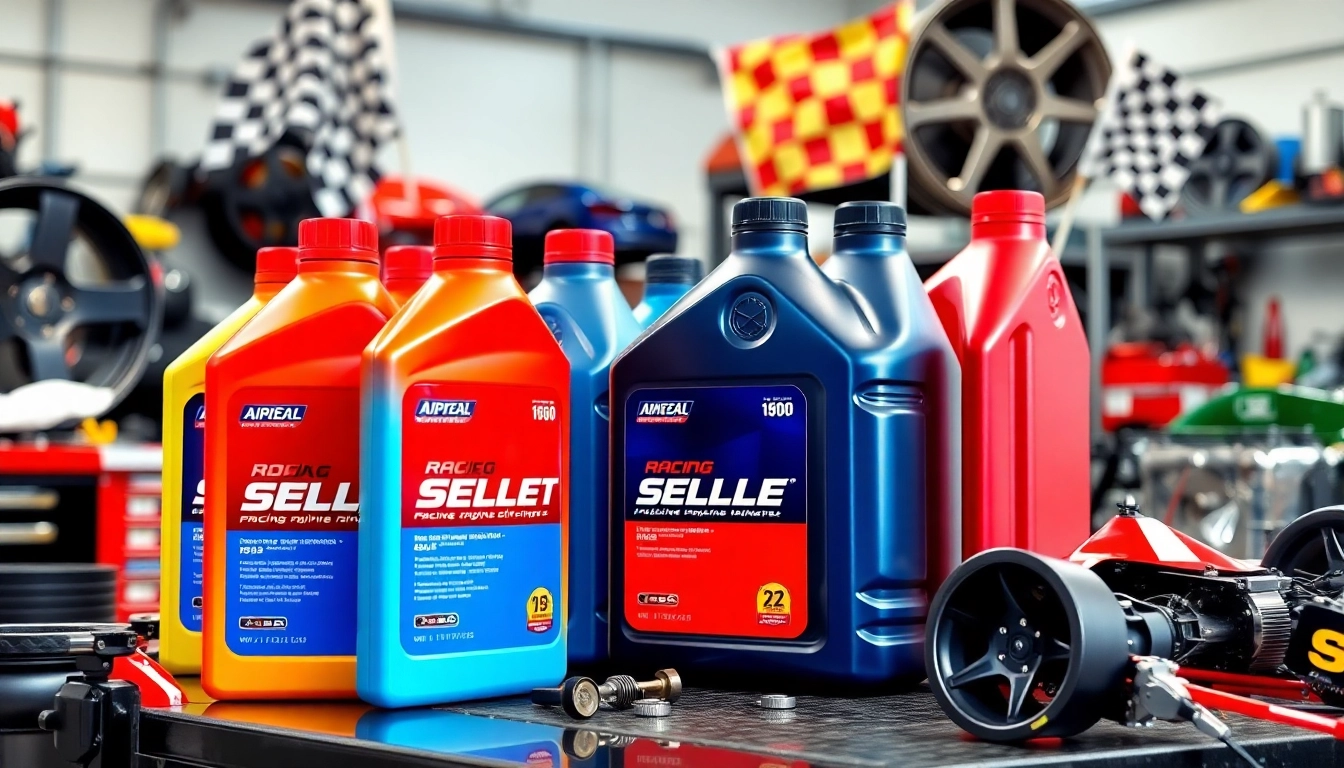Understanding Racing Engine Oils
Racing engine oils are specially formulated lubricants tailored to meet the rigorous demands of high-performance engines. These oils play a crucial role in ensuring optimal engine function under extreme conditions. As automotive technology progresses, the need for high-quality lubricants has also grown, especially for those who participate in racing. With their unique formulations, racing oils not only reduce friction but also enhance engine efficiency, extend engine life, and contribute to overall performance. In this exploration, we’ll dive deep into the characteristics and benefits of racing engine oils while guiding you on selecting the right oil for your vehicle.
What are Racing Engine Oils?
Racing engine oils are high-performance lubricants developed to provide superior protection and performance than conventional motor oils. They are engineered with specific additives that help maintain their properties under high temperatures and pressures typical in racing environments. Unlike ordinary oils, racing oils are commonly used in high-revving engines that demand optimal performance over extended periods. These oils are designed to withstand extreme conditions, ensuring that motors operate smoothly even when pushed to their limits.
Key Ingredients and Their Functions
Racing engine oils are carefully crafted with various ingredients that contribute to their performance capabilities. Some key components include:
- Base Oils: The primary component that makes up the majority of the oil. High-quality synthetic base oils offer better thermal stability and lower volatility, which are crucial for racing conditions.
- Additives: These include detergents, dispersants, anti-wear agents, and friction modifiers. They enhance lubrication qualities, clean engine components, and protect against wear and corrosion.
- Viscosity Improvers: Specially designed polymers that optimize oil viscosity, ensuring the oil maintains its protective qualities at varying temperatures.
- Anti-oxidants: Help prevent the oil from breaking down under high heat, extending the oil’s usable life and protecting the engine.
How Racing Oils Differ from Regular Oils
The principal distinctions between racing oils and standard motor oils lie in their formulation and intended use. Regular oils are designed for everyday driving conditions, providing adequate protection for most engines. In contrast, racing oils are tailored for specific demands:
- High Viscosity: Racing oils typically have higher viscosity ratings to maintain film strength under extreme temperatures and pressures.
- Low Volatility: Racing oils are formulated to evaporate less at high temperatures, which reduces oil consumption and ensures consistent lubrication.
- Enhanced Additive Packages: Racing oils have a higher concentration of additives tailored to protect against wear during high-stress moments like acceleration, turns, and braking.
Benefits of Using Racing Engine Oils
Enhancing Engine Performance
One of the primary benefits of using racing engine oils is enhanced engine performance. The unique formulation helps reduce engine friction, allowing for more efficient power transfer. This results in better acceleration and throttle response, which are crucial for competitive racing.
Additionally, racing oils can help maintain engine cleanliness by minimizing deposits and sludge buildup, thereby preserving engine performance over time.
Temperature Resistance and Stability
Racing engines often operate at much higher temperatures than regular engines. Racing engine oils are designed to withstand these temperatures without breaking down or losing their protective qualities. This thermal stability helps prevent oil degradation and maintains optimal lubrication even during intense racing episodes. Choosing a racing oil that can handle elevated temperatures is essential for ensuring your vehicle performs at its best under competitive conditions.
Longevity and Reduced Wear
Racing oil not only improves performance but also extends engine life. The advanced formulation helps reduce wear on engine components, minimizing the risk of costly repairs and downtime. The inclusion of anti-wear additives means that critical parts like pistons and cylinder walls receive maximum protection, allowing them to last longer even in tough racing environments.
Choosing the Right Racing Oil for Your Vehicle
Compatibility with Specific Engine Types
When selecting racing engine oil, compatibility with your vehicle’s engine type is crucial. Different engine designs, such as V8s, inline fours, and turbocharged engines, may require specific oil formulations. Understanding these requirements can help you choose a racing oil tailored to enhance your engine’s capabilities.
Factors to Consider: Viscosity and Additives
Viscosity plays a pivotal role in an oil’s performance. For racing applications, higher viscosity oils are often recommended, especially for high-revving motors that generate significant heat. Additionally, scrutinizing the additive package is vital: some engines may benefit from oils rich in anti-wear and friction-reducing additives, while others might require oils with specific detergents to ensure engine cleanliness.
Recommendations for Popular Vehicle Models
Before making a purchase, it’s beneficial to consult recommendations for popular performance vehicle models. For example, models like the Toyota Supra or Mazda RX-7 often perform better with oils from established brands known for their high-octane racing formulations. Academic resources, online forums, or automotive experts can provide valuable insights into which engine oils yield the best results for specific makes and models.
Best Practices for Using Racing Engine Oils
Proper Oil Change Intervals
Frequent oil changes are essential in maintaining engine health when using racing oils. The extreme conditions of racing can cause oil degradation more rapidly than in standard vehicles. It’s recommended to follow a strict oil change schedule based on both mileage and time, swapping out the oil more frequently if the vehicle is used in competitive racing scenarios.
Monitoring Oil Condition and Performance
Regular monitoring of oil condition can help spot potential issues before they escalate. Checking for evidence of metal particles or contaminants during routine inspections can provide early warnings of engine wear. Employing oil analysis services can also yield data-driven insights into oil performance and whether a change is necessary.
Handling and Storage Guidelines
Proper handling and storage of racing oils can significantly affect their performance. Always keep the oil in tightly sealed containers to prevent contamination and ensure it is stored at a stable temperature. Prevent exposure to direct sunlight and extreme temperatures, as these can deteriorate the oil prematurely. Following these guidelines helps maintain the oil’s integrity until it’s time to use it.
Performance Metrics and Testing of Racing Oils
How to Measure Oil Performance
Assessing the performance of racing oils can be achieved through various metrics. Key indicators include wear metal content, viscosity stability, and thermal breakdown temperature. Racing teams often track these metrics to evaluate the oil’s effectiveness under real-world racing conditions.
Testing Methods and Standards
Automotive laboratories use standardized tests for evaluating oil performance. Some common methods include the ASTM D2881, which measures the oil’s ability to protect against wear under extreme pressure, and the ASTM D445, which measures viscosity at different temperatures. Understanding these testing standards allows racers to make informed decisions about which products will best meet their needs.
Analyzing Results for Optimal Choices
Once testing data is collected, analyzing the results is crucial for making optimal oil choices. Pay close attention to how well different oils performed under similar conditions to mine. Engines in racing scenarios may react differently to various formulations, and thorough analysis helps identify which oils provide the best balance of protection, performance, and longevity.


